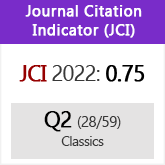Riqueza, impiedad y ὕβρις en el Contra Midias de Demóstenes
DOI:
https://doi.org/10.3989/emerita.2011.02.1014Palabras clave:
σέβεια, democracia, ὕβρις, ideología, oligarquía, προβολή, retórica, tiraníaResumen
En el discurso Contra Midias, Demóstenes elabora el carácter de su acusado, construyéndolo sobre los vicios que, desde época arcaica, habían sido concebidos como propios del mayor enemigo interno de la comunidad: el tirano. La voluntad del demandante es convertir a Midias, no en su enemigo personal, sino en el de toda la ciudad, de los dioses y de las leyes. Por ello elige un procedimiento público a pesar de los riesgos que ello conlleva, y para ello lo acusa de delitos que resultan rechazables para la ética cívica y que pueden ser vistos como peligrosos para la polis: la ὕβρις, la σέβεια y una actitud impropia hacia las riquezas. El discurso además incluye lo que parece ser un ataque indiscriminado a los ricos por contrarios al poder del demos. Sin embargo, en una línea muy convencional, la de la defensa de los valores tradicionales comunitarios, Demóstenes ensalza la dedicación a lo común y denuesta el ocuparse de las cosas privadas, sirviéndose de principios de actuación más tradicionales que específicamente democráticos.
Descargas
Citas
Badian, E. 1995: «The Ghost of Empire. Reflections on Athenian Foreign Policy in the Fourth Century BC», en Eder, W. (ed.), Die athenische Demokratie im 4 Jahrhundert v. Chr. Vollendung oder Verfall einer Verfassungsform, Stuttgart, pp. 82-105.
Balot, R. 2001: Greed and Injustice in Classical Athens, Princeton.
Brun, P. 1983: Eisphora, syntaxis, stratiotika, París.
Buchanan, J. 1954: ‘Theorika’: A Study of Monetary Distributions to the Athenian Citizenry during the Fifth and Fourth Centuries BC, Princeton.
Burke, E. 1992: «The Economy of Athens in the Classical Era: Some Adjustments to the Primitivist Model», TAPA 122, pp. 199-226.
Cawkwell, G. L. 1963: «Eubulus», JHS 83, pp. 47-67. http://dx.doi.org/10.2307/628453
Cohen, D. 1991: Law, Sexuality, and Society. The Enforcement of Morals in Classical Athens, Cambridge. http://dx.doi.org/10.1017/CBO9780511597381
Cohen, D. 1995: Law, Violence and Community in Classical Athens, Cambridge.
Cohen, E. 1992: Athenian Economy and Society. A Banking Perspective, Princeton.
Cohen, E. 2000: The Athenian Nation, Princeton.
David, E. 1984: Aristophanes and Athenian Society of Early Fourth Century BC, Leiden.
Davies, J. K. 1984: Wealth and the Power of Wealth in Classical Athens, Salem (revisión de la 1.ª parte de la tesis del autor, Oxford 1965).
Dettenhofer, M. H. 1999: «Paxagoras Programm. Eine politische Deutung von Aristophanes Ekklesiazusai als Beitrag zur inneren Geschichte Athens im 4. Jahrhundert v. Chr.», Klio 81, pp. 95-111.
Dover, K. J. 1974: Greek Popular Morality in the Time of Plato and Aristotle, Oxford.
Fisher, N. 1990: «The Law of hybris in Athens», en Cartledge, P., Millett, P. y Todd, S. (eds.), Nomos. Essays in Athenian Law, Politics and Society, Cambridge, pp. 123-138.
Fisher, N. 1992: Hybris. A Study in the Values of Honor and Shame in Ancient Greece, Warminster.
Fredal, J. 2001: «The Language of Delivery and the Presentation of Character: Rhetorical Action in Demosthenes’ Against Meidias», Rhetorical Review 20, pp. 251-267. http://dx.doi.org/10.1207/S15327981RR2003&4_03
Gentili, B. 1979: «Polemica antitiranica (Pind. Pyth 11; Aesch. Prom.; Herodt. 30, 80-81; Thuc. 2, 65, 9)», QU 30, pp. 153-156.
Gabrielsen, V. 1994: Financing the Athenian Fleet. Public Taxation and Social Relations, Londres.
Harris, E. 1989: «Demosthenes’ Speech Against Midias», ClPh 92, pp. 117-136.
Harris, E. 1996: «Demosthenes and the Theoric Fund», en Wallace, R. y Harris, E. (eds.), Transitions to Empire, Norman, pp. 57-76.
Henderson, J. 2003: «Demos, Demagogue, Tyrant in Attic Old Comedy», en Morgan, K. A. (ed.), Popular Tyranny. Sovereignty and its Discontents in Ancient Greece, Austin, pp. 155-179.
Herman, G. 2006: Morality and Behaviour in Democratic Athens. A Social History, Cambridge.
Hunt, P. 2010: War, Peace, and Alliance in Demosthenes’ Athens, Cambridge.
Kallet-Marx, L. 1994: «Institutions, Ideology, and Political Consciousness in Ancient Greece: Some Recent Books on Athenian Democracy», JHI 55, pp. 307-335. http://dx.doi.org/10.2307/2709902
Lanza, D. 1977: Il tiranno e il suo pubblico, Turín.
Lenfant, D. 1997: «Rois et tyrans dans le téâtre d’Aristophane», Ktèma 22, pp. 185-200.
Leppin, H. 1995: «Zur Entwicklung der Verwaltung öffentlicher Gelder im Athen des 4. Jahrhundert v. Chr. 557-571», en Eder, W. (ed.), Die athenische Demokratie im 4 Jahrhundert v. Chr. Vollendung oder Verfall einer Verfassungsform, Stuttgart, pp. 558-571.
Lévy, E., 1997: «Richesse et pauvreté dans le Ploutos», Ktèma 22, pp. 201-212.
Lewis, J. D. 2009: «Xenophon’s Poroi and the Foundations of Political Economy», Polis 26 (Gish, D. y Ambler, W. [eds.], The Political Thought of Xenophon), pp. 370-388.
MacDowell, D. 1976: «Hybris in Athens», G&R 23, pp. 14-31.
MacDowell, D. 1986: «The Law of Periandros about Symmories», ClQ 36, pp. 438-449.
MacDowell, D. 1990: Demosthenes Against Meidias (Oration 21), Oxford.
Meikle, S. 1990: «Aristotle and Exchange Value», en Keyt, O. y Miller, F., Jr. (eds.), A Companion to Aristotle’s Politics, Oxford (GB)-Cambridge (EEUU), pp. 156-181.
Mitchell L. y Rhodes P. J. 1996: «Friends and Enemies in Athenian Politics. I. New for Old Friendship Networks in Athenian Politics. II. Personal Enmity and Political Opposition in Athens», G&R 43, pp. 11-30.
Moreno, A. 2007: Feeding the Democracy. The Athenian Grain Supply in the Fifth and Fourth Centuries BC, Oxford.
Morris, I. 1996: «The Strong Principle of Equality and the Archaic Origins of Greek Democracy», en Ober, J. y Hedrick, Ch. (eds.), Demokratia. A Conversation on Democracies, Ancient and Modern, Princeton, pp. 19-48.
Murray, O. 1990: «The Solonian Law of Hybris», en Cartledge, P., Millett, P. y Todd, S. (eds.), Nomos. Essays in Athenian Law, Politics and Society, Cambridge, pp. 139-145.
Nafissi, M. 2004: «Class, Embeddedness, and the Modernity of Ancient Athens», Society for Comparative Study of Society and History, pp. 378-410.
Nagy, G. 1985: «Theognis and Megara: A Poet’s Vision of his City», en Figueira, Th. y Nagy, G. (eds.), Theognis of Megara. Poetry and the Polis, Baltimore- Londres, pp. 22-81.
Natali, C. 1990: «Aristote et la chrématistique», en Patzig, G. (ed.), Aristotele’s Politik. Akten des XI Symposium Aristotelicum, Gotinga, pp. 296-324.
Ober, J. 1989: Mass and Elite in Democratic Athens. Rhetoric, Ideology, and the Power of the People, Princeton.
Ober, J. 1994: «Power and Oratory in Democratic Athens. Demosthenes 21, Against Meidias», en Worthington, I. (ed.), Persuasion. Greek Rhetoric in Action, pp. 85-108.
Ober, J. 2000: «Quasi-Rights: Participatory Citizenship and Negative Liberties in Democratic Athens», Social Philosophy and Policy Foundation 17, pp. 27-61. http://dx.doi.org/10.1017/S0265052500002521
Ober, J. 2001: «The Debate over Civic Education in Classical Athens», en Too, Y. L. (ed.), Education in the Greek and Roman Antiquity, Leiden, pp. 175-207.
Olbrys, K. y Samaras, Th. 2007: «Is Ancient Democracy Quasi-liberal?», RIDA 54, pp. 111-141.
Olson, S. 1990: «Economics and Ideology of Aristophanes Ploutos», HSCP 93, pp. 223-242.
Ostwald, M. 2000: Oligarchia. The Development of a Constitutional Form in Ancient Greece, Stuttgart.
Pecorella Longo, Ch. 1971: «Eterie» e gruppi politici nell’Atene del IV sec. a.C., Florencia.
Reden, S. von 1997: «Money, Law and Exchange: Coinage in the Greek Polis», JHS 117, pp. 154-176. http://dx.doi.org/10.2307/632554
Rose, P. W. 2006: «Divorcing Ideology from Marxism and Marxism from Ideology: Some Problems», Arethusa 39, pp. 101-136. http://dx.doi.org/10.1353/are.2006.0006
Rosenbloom, D. 2009: «Oikos, Economy, and Ideology in Aristophanes’ Ploutos», Abstracts for the 2009 Annual Meeting of the American Philological Association, ‹apaclassics.org/images/uploads/documents› (13/12/2010).
Rowe, G. 1993: «The Many Facets of hybris in Demosthenes’ Against Meidias», AJPh 114, pp. 397-406.
Rowe, G. 1994: «The Charge against Meidias», Hermes 122, pp. 55-63.
Rudhardt J., 1960: «La définition du délit d’impiété d’après la législation attique», MH 17, pp. 87-105.
Ruschenbusch, E. 1965: « .βρεω. γραφ. Ein Fremdkörper im athenischen Recht des 4. Jahrhundert v. Chr.», ZSS 82, pp. 302-309.
Ruschenbusch, E. 1979: «Die Einfu.hrung des Theorikon», ZPE 36, pp. 303-308.
Scafuro, A. 2004: «The Role of the Prosecutor and Athenian Legal Procedure (Dem. 21.10)», Dike 7, pp. 113-133.
Seaford, R. 2003: «Tragic Tyranny», en Morgan, K. A. (ed.), Popular Tyranny. Sovereignty and Its Discontents in Ancient Greece, Austin, pp. 95-115.
Swanson, J. 1992: The Public and the Private in Aristotle’s Political Philosophy, Cornell U.P., Ithaka-Londres.
Thompson, W. E. 1987: «Athenian Ideologies», Prudentia 19, pp. 22-33.
Thomsen, R. 1964: Eisphora. A Study of Direct Taxation in Ancient Athens, Copenhague.
Todd, S. C. 1990: «Lady Chatterley’s Lover and the Attic Orators: the Social Composition of the Athenian Jury», JHS 110, pp. 146-173. http://dx.doi.org/10.2307/631737
Vannier, F. 1988: Finances publiques et richeses privées dans le discours athénien, París.
Whitehead, D. 1983: «Competitive Outlay and Community Profit: φιλοτιμ.α in Democratic Athens», Cl&M 34, pp. 55-74.
Whitehead, D. 1993: «Cardinal Virtues: The Language of Public Approbation in Democratic Athens», Cl&M 44, pp. 37-75.
Winterling, A. 1993: «Arme und Reiche. Die Struktur griechische Polisgesellschaften in Aristoteles Politik», Saeculum 44, pp. 179-205.
Descargas
Publicado
Cómo citar
Número
Sección
Licencia
Derechos de autor 2011 Consejo Superior de Investigaciones Científicas (CSIC)

Esta obra está bajo una licencia internacional Creative Commons Atribución 4.0.
© CSIC. Los originales publicados en las ediciones impresa y electrónica de esta Revista son propiedad del Consejo Superior de Investigaciones Científicas, siendo necesario citar la procedencia en cualquier reproducción parcial o total.Salvo indicación contraria, todos los contenidos de la edición electrónica se distribuyen bajo una licencia de uso y distribución “Creative Commons Reconocimiento 4.0 Internacional ” (CC BY 4.0). Puede consultar desde aquí la versión informativa y el texto legal de la licencia. Esta circunstancia ha de hacerse constar expresamente de esta forma cuando sea necesario.
No se autoriza el depósito en repositorios, páginas web personales o similares de cualquier otra versión distinta a la publicada por el editor.














